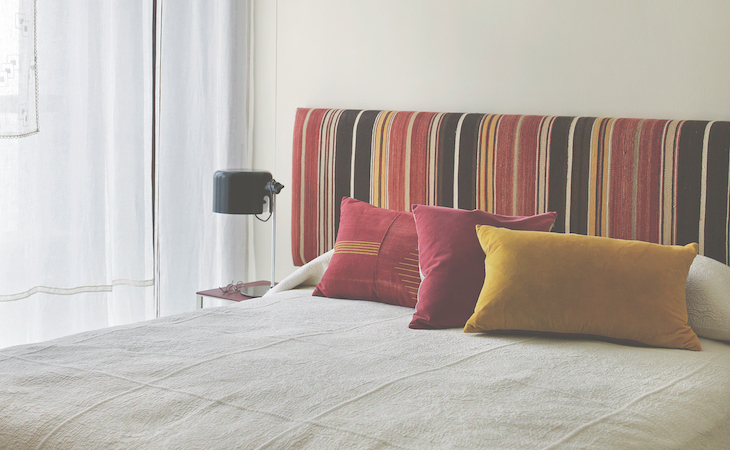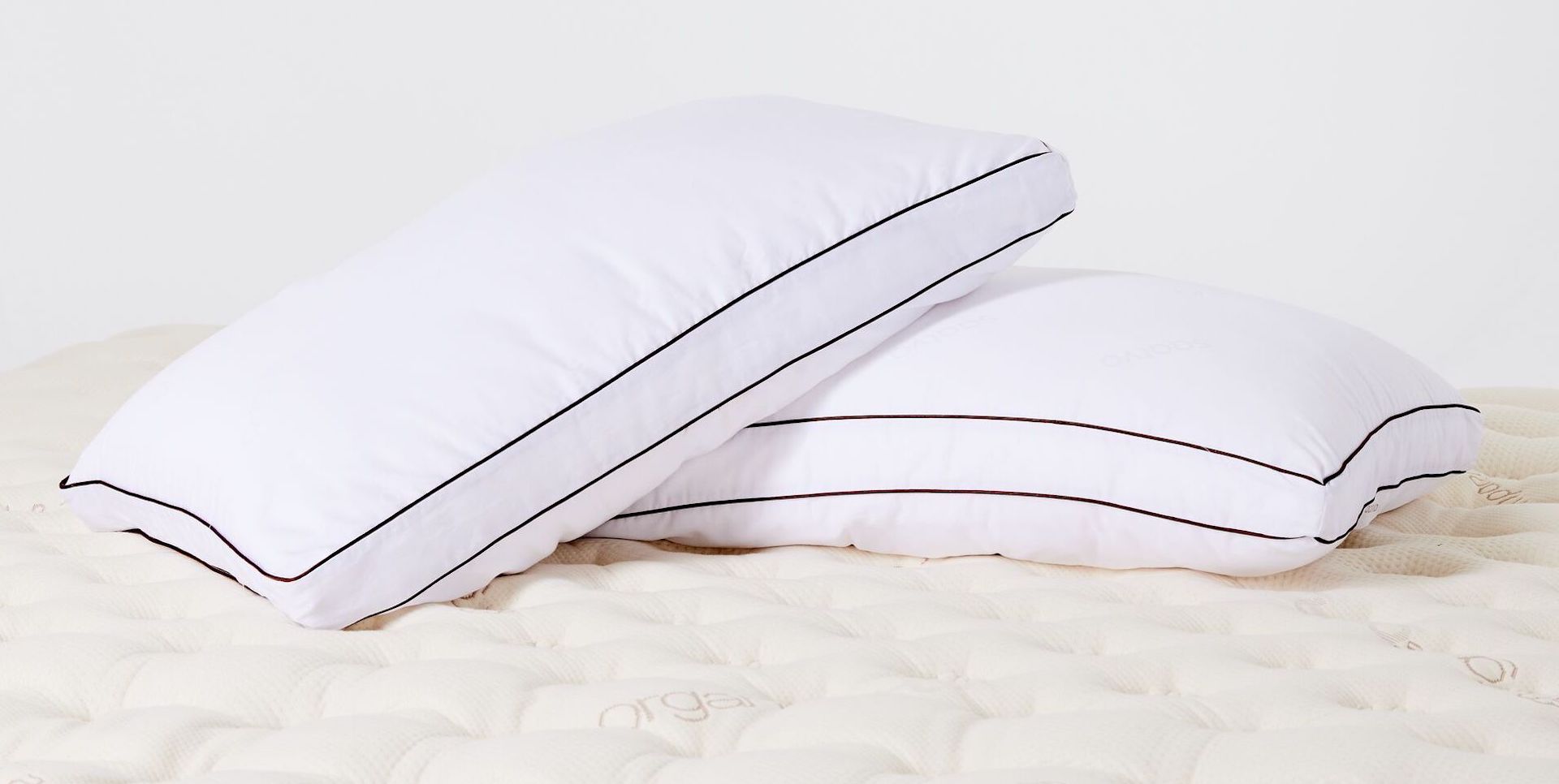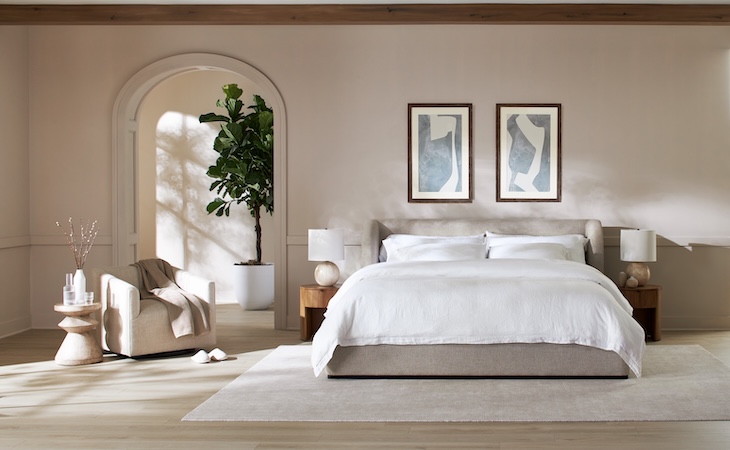Do you ever stop to think about how important your bedroom really is? It’s the place that soothes you after a long, stressful day. Where you might meditate or practice some yoga before going to bed. And where you sleep each and every night, gathering energy and good health for the next day ahead.
Anjie Cho is the author of a new book called Mindful Homes: Create Healing Living Spaces with Mindfulness and Feng Shui (CICO Books) and the co-founder of the Mindful Design Shui School. As a feng shui (pronounced: fuhng shwey) educator and licensed architect, she says it’s her joy and privilege to share feng shui and healing through people’s living spaces.
Cho has her own boutique firm in New York City, where she co-creates a handful of homes and businesses each year. She’s worked in the architecture field since 1999 and has been practicing feng shui since 2006, making her a wise expert when it comes to bringing together these two disciplines.
We asked her to tell us all about her new book, shed some light on the importance of feng shui, and share some of her best tips for applying feng shui principles to your own bedroom.
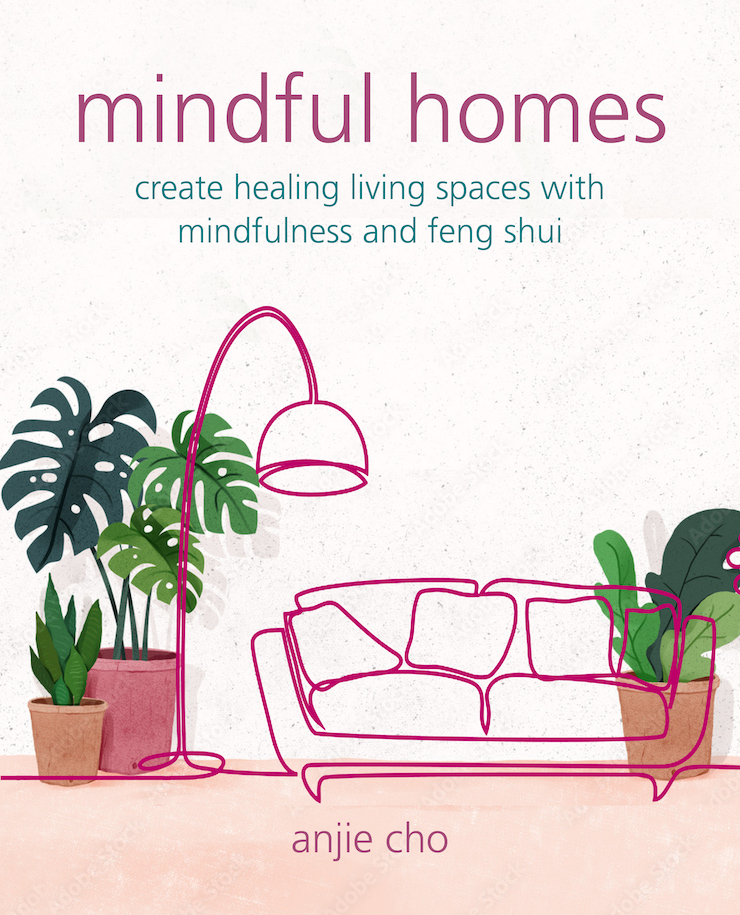
Q: Tell us about your book, Mindful Homes.
Mindful Homes is a book about feng shui as a mindfulness practice. This book is something that can be picked up by a feng shui newbie, and there are still bits that would benefit a long-time practitioner. Mindful Homes offers an overview of the basic foundations of feng shui from a mindful perspective as well as practical tools that one can apply to their home.
There’s guidance for the reader to learn what feng shui and mindfulness are. Then the book opens up to an exploration of yin/yang, the five elements, and the feng shui bagua map. We then walk through feng shui suggestions for simplifying the home and share room-by-room tips for the bedroom, kitchen, and workspace.
Q: What inspired you to write this book?
After teaching and working with clients using the ancient practices of meditation and feng shui for over 15 years, my connection to these teachings has evolved. I felt a responsibility and a deep longing to redefine feng shui through the lens of mindfulness.
This book offers a perspective on feng shui that invites the reader to have curiosity about their spaces and uncover the wisdom that is always within each of us. The book inspires me and the readers to see feng shui as a journey to find healing within our homes.
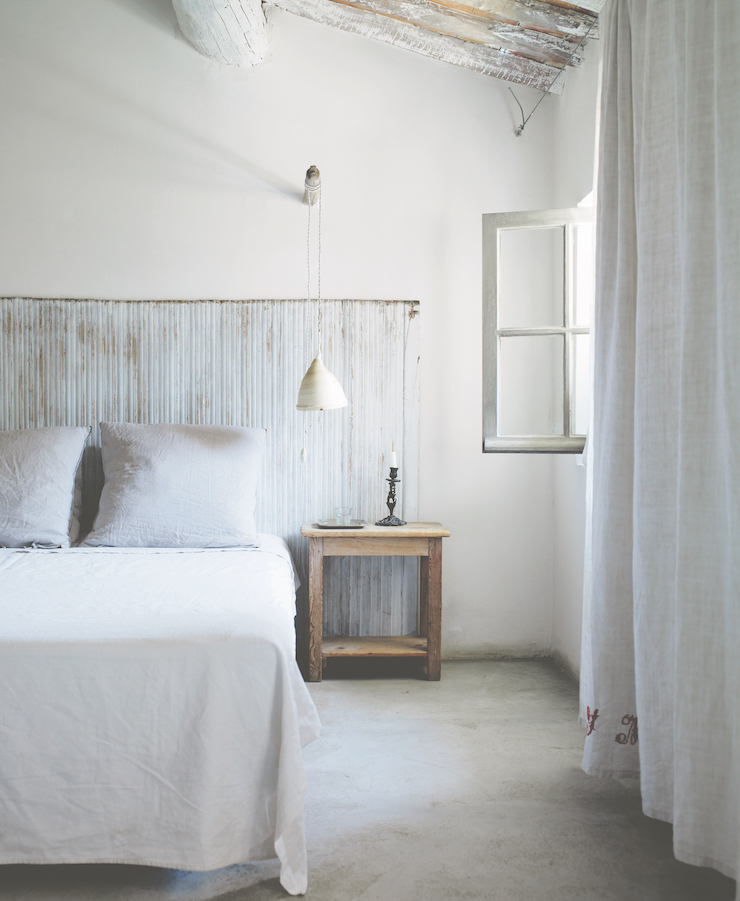
Q: Why is feng shui so important in our homes and in our lives?
Globally, we have all shifted in the past few years. Our lives have changed tremendously, and within that, our perspectives and relationship to our homes. We spent much more time inside, and it became clear that our spaces affected us. I’ve seen people reevaluate their homes, where they live, let go, or invite in something very new home-wise.
Feng shui also highlights how our environments are integral to our lives. We are interconnected and interdependent with our homes. There’s an invitation to shift our living spaces to support and nurture us, rather than create environments that deplete us and create stress.
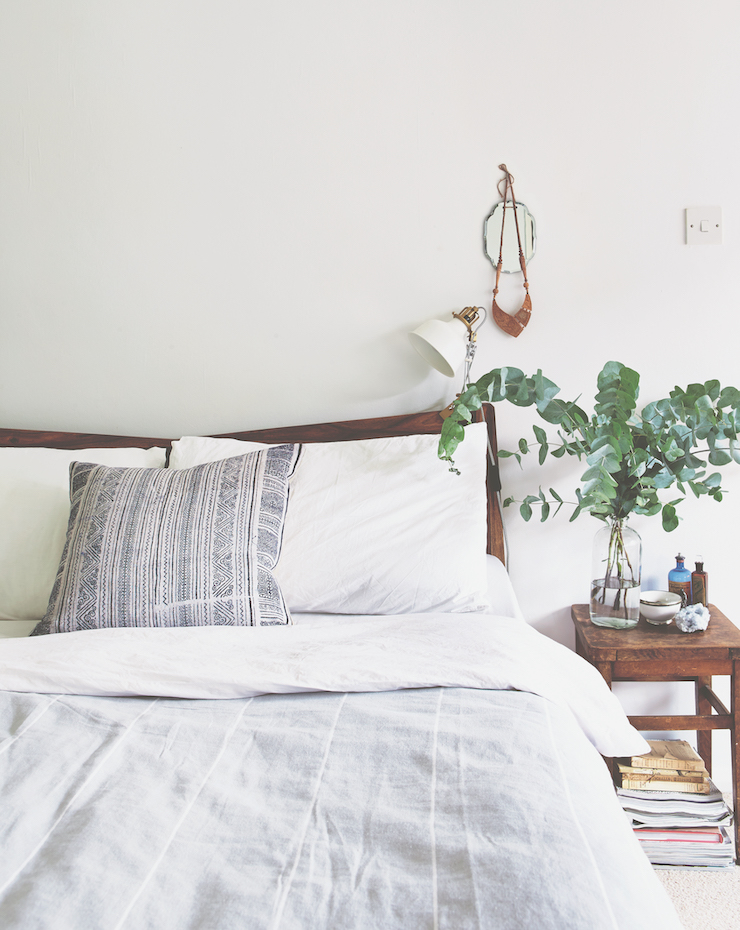
Q: What are your best tips for putting together a mindful bedroom that’s optimized for sleep?
Here are some of my best guidelines for creating a mindful, restful bedroom using feng shui to encourage restful sleep:
- The bed is one of the most important areas to work with when it comes to feng shui because it represents you and is the closest to you. Feng shui shifts in your bedroom can inspire powerful changes. We also spend a third of our lives in bed. So the energy affects us deeply.
- Surround yourself with the highest-quality bed items possible. This includes the mattress, the bed linens, your pajamas, etc. What we have around us while we sleep affects us. The life force energy (qi) that is vibrating in the materials that cocoon us while we are resting become part of our qi. Do the best you can with what you have and purchase the most ethical and highest-vibration bed products.
- The commanding position is a core principle in feng shui, which guides one on how they place their bed in a room. You want to have your bed so that while you’re lying in bed (like leaning back on your headboard), you can see the door without being directly in line with the door. This typically means that you are diagonal from the door. You do not want to have your feet pointing out the door. You want to have a stable wall behind the headboard. If this is not possible to achieve, you can do the best with what you have and you can set up a mirror so that when you are in bed you can see the door reflected in the mirror.
- Ideally, it’s best to have a solid, stable headboard attached to your bed. The headboard will create support, like your back or spine. The headboard always has your back.
- It’s also ideal to have nothing under the bed if possible. We like to have the qi (life force energy) flowing around us easily. If you must have storage under the bed, it’s best to stick to sleep-related soft items like pillows, extra linens, and blankets. Avoid anything that is emotionally charged or high energy.
- Books in the bedroom can often create too much busy “thinking” activity. It’s best if they have their home elsewhere outside of the bed area.
Q: What are some things you do in your own life to sleep well?
One thing I love to incorporate to support my sleep is to have a fancy bath with essential oils, crystals, salts, and so forth. Water and baths are healing for me and help me to wind down. I also treat myself to high-quality organic pajamas and linens so I have the best qi flowing around me while I’m asleep.
Next, check out our Q&A with a wellness designer on how to create a healthier bedroom and home.
Credit for top image: Debi Treloar © CICO Books

